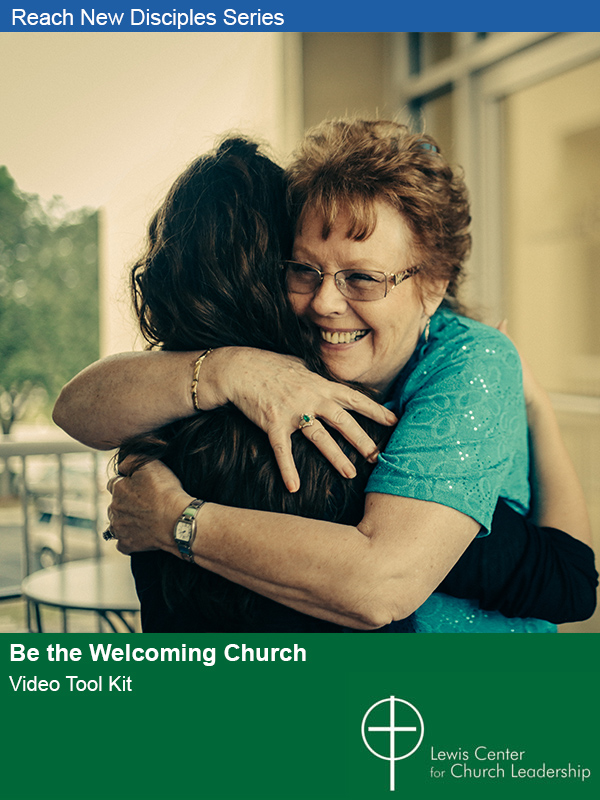Ann Michel recommends three books as guideposts to navigate the sociological and theological terrain of youth ministry.
What is the religious life of American youth like? A trio of recent books offers some guideposts to navigate the sociological and theological terrain of youth ministry. They call into question many traditional assumptions about teenagers and religion, reveal the depth and complexity of spiritual formation in youth, and challenge the church to take both young people and the Gospel more seriously.
It is tempting to blame youth ministry’s difficulties on teenagers themselves. We tend to think of them as rebellious, disinterested in religion, and inattentive to their parents. Sociologist Christian Smith corrects these unfortunate assumptions in Soul Searching: The Religious and Spiritual Lives of American Teenagers (Oxford University Press, 2005). His book contains results of the largest ever survey of teen spirituality. Taken at face value, the data dispute the notion of a widespread loss of religious belief among youth. More than eighty percent believe in God, forty percent attend religious services weekly, and few experiment with alternate spiritualities. Through normal processes of socialization, most young people follow the faith of their parents without much question.
Taken through this wide angle lens, the picture of teen spirituality appears rather rosy. When viewed through a zoom lens, however, the picture looks vastly different and less assuring. To augment the survey, Smith conducted in-depth interviews of teens across America. These interviews significantly qualify some of the survey’s findings. While not hostile toward religion, most teens simply take it for granted. It operates in the background of lives otherwise dominated by school, sports, homework, and socializing. Most teens are incredibility inarticulate about their faith, have little understanding of their own traditions, and often propound unorthodox views. For many teens, God is a combination of “cosmic therapist” who helps people feel good about themselves and “divine butler” whose job it is to solve problems without becoming too personally involved — not a God demanding repentance, humility, obedience, self-sacrifice, love of neighbor, and justice.
And teens are not alone. Smith maintains this belief pattern is so widespread that it operates as a de facto popular religion with adherents from virtually all faith traditions. The problem with youth ministry, then, is hardly teenage hostility to their parents’ faith, but rather that their parents have transmitted a faith infected by what Smith calls a “parasite.”
Carol E. Lytch’s Choosing Church: What Makes a Difference for Teens (Westminster John Knox, 2004) provides another close-up look at young people’s faith. She is particularly interested in the question, “What connects youth with church in a climate of heightened personal autonomy and looser social ties?” Based on a year of intensive field research with three successful high school youth groups in Louisville, Kentucky,she identifies seven teenage styles of “being religious.” While some kids accept or reject their faith traditions on face value, the majority are “marginalizers,” who participate in church and profess belief but whose faith does not carry over into their different social spheres, or “customizers,” who pick and choose among church doctrines, combining them with ideas from other faiths or popular culture. Even among members of the city’s most successful Catholic and United Methodist youth groups, these styles of being religious were dominant.
These sociological findings reinforce Kenda Creasy Dean’s message in Practicing Passion: Youth and the Quest for a Passionate Church (Eerdmans, 2004). Her book is an urgent plea to ground youth ministry in a robust and compelling Christology. She makes an eloquent theological argument for offering youth a “passionate God” of self-giving love. Adolescents are wired to lead with their hearts, programmed to fall in love, and searching for a cause worthy of dying for. “In short,” Dean writes, “they are searching for passion, even — maybe especially — in church. Teenagers will not settle for a God who asks for anything less.” Dean explores how divine attributes — fidelity, transcendence, mystery, and communion — fundamentally resonate with adolescent desires for belonging, awe and intimacy.
These books offer no quick fixes or simple formulas for youth ministry, but there are some practical lessons to be learned:
More than Fun and Games
These authors contradict the popular wisdom of youth fellowship built around activities that are fun and easy, contemporary music, or attractive, ‘high-energy’ leaders. What connects teenagers to church? Lytch concludes that a sense of belonging, the search for meaning, and the opportunity to develop competence are the three “hooks” attracting kids to church. Similarly, Dean identifies three basic developmental needs among adolescents — acceptance, camaraderie, and to feel part of something great. But these needs, Dean argues, are not met by youth clubs or educational programs, but through a compelling theology.
Youth Ministry Matters
Connecting with kids is not only a spiritual and theological imperative; Smith’s research demonstrates religion influences the lives of teenagers in positive ways. Religiously involved kids attend school more, have better relationships with parents, watch less TV, and are less likely to engage in dangerous behaviors from smoking and drug use to promiscuity. Differences in personality cannot explain away these associations. Moreover, religious organizations are uniquely positioned to embrace youth and strengthen ties between young persons and adults.
The Importance of Parents
Both Smith and Lytch reaffirm the primacy of parental influence on children’s religious beliefs, even for older teenagers. Family variables, including regular church attendance, are major determinates of whether young persons will stay active in church after leaving home. Successful youth ministries must enlist parents as key allies, educating and equipping them to model faithful living and nurture the spiritual formation of their own children. The best way to get youth involved and serious about faith is to get their parents involved and serious.
Transforming, Transformed Congregations
The underlying message of these books is the church cannot successfully convert youth without clarifying its own theological identity. The hope, as Kendra Dean writes, is that “young people’s openness to passion makes them important witnesses to the church .…” Through the transformation of youth, God will remake not only them, but us as well.
Related Resources
- Cultivating a Consequential Faith Jessicah Krey Duckworth
- No Easy Button for Fruitful Youth Ministry Mark DeVries
- 50 Ways to Strengthen Ministry with Youth







